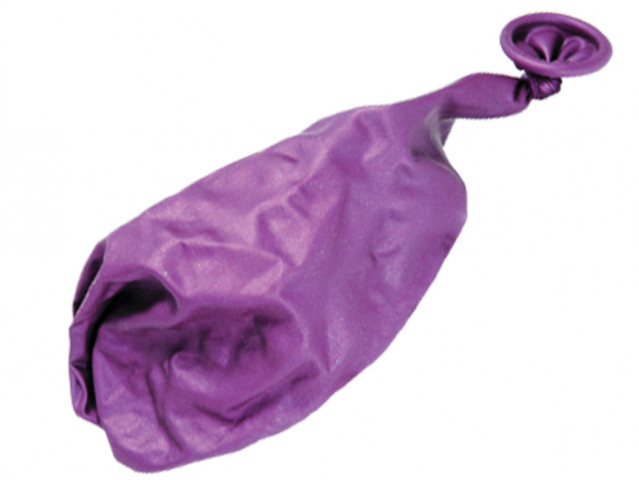Fertility treatments: Fake it till you make it
There is hope for some couples who are classified as ‘sub-fertile’, unable to conceive naturally.

Fertility treatments: Fake it till you make it
Ayesha, 44, has suffered her fourth miscarriage and now doctors say she will never be able to conceive again. Her story is surprisingly similar to that of many women in a country where the average woman has six children. However, where her story differs, is that Ayesha faked all four of her miscarriages to avoid pressure from society and her in-laws. In reality, her husband Usman is infertile. Ayesha had to make up the story to spare him.
“Infertility is one of the most distressing things that can happen to a couple and it is very common for the woman to bear the brunt of the stress even if the medical inability (to reproduce) lies with her husband,” says head of obstetrics and gynaecology at Jinnah hospital Dr Shereen Bhutta.
But there is hope for some couples who are classified as ‘sub-fertile’, meaning they are unable to conceive naturally and require some level of medical assistance, assures gynaecological consultant at the Orthopaedic and Medical Institute (OMI) Dr Sadiah Ahsan Pal.
Sub-fertile couples can seek a variety of treatments. Chief Executive Officer at South City Hospital Dr Saadia Virk-Rizvi said there are four steps to a month-long diagnostic procedure to determine a couple’s (in)fertility which can cost up to Rs50,000. First is a simple hormone check test on the second day of the woman’s menstrual cycle. Second, a pelvic ultrasound for the woman. Third, a test to ascertain the potency, quantity and quality of the sperm. Finally, in a key-hole surgical procedure, a camera takes pictures of the peritoneal cavity, ovaries, outside of the tubes and uterus.
Some factors need to be kept in mind while undergoing these tests, cautions Concept fertility clinic’s Shahnaz Nadir. “The woman’s age is of primary concern with the secondary issue being the number of years the couple has been trying for a child without success,” she elucidates.
A fertile woman can conceive between 15 and 49 years, the optimum time. For first time conception, it is between 20 and 30 years. A woman is most fertile between the 11th and 19th day of the menstrual cycle. Between 30 and 35 years is considered a bonus period and once she crosses 40 years, chances drastically decline.
“A large percentage of success depends on how soon a couple seeks help,” Rizvi says, adding that many couples do not get help till the woman is over 40 years old. “For women under 30, if she has not managed to conceive after nearly two years of unprotected intercourse, she needs to get checked,” Pal advises.
Why do women wait?
Women have become more career oriented and push having children to later in life only to realise in some cases it has become too late. Second, excessive intermarrying causes complications; women suffer abnormal pregnancies, end up miscarrying several times and end up with issues such as polycystic ovaries (PCO).
Experts say fertility treatments are mired in taboo. One popular misconception in a type of treatment involving test tube babies is that the sperm used to (fertilise the egg) is from another donor. But none of this ever happens, and certainly not without the couple’s consent.
“Couples want to try medicines for as long as they can and continue to be wary of surgical options or assisted contraception,” Rizvi says. Sharing her experiences, Nadir says most of couples come to the clinic with their families. “They usually come to us once they have exhausted all options, from taweez and pirs to general practitioners and all sorts of medication.” For women who have problems ovulating, such as cases of PCO, GPs give them medication to regularise their menstrual cycle but that does not help them conceive.
Treatment includes invitro fertilisation (IVF) and intracytoplasmic sperm injection (ICSI). The international success rate for them, depending on other variable factors, is quoted between 20 and 30 per cent while each cycle can cost between Rs250,000 and Rs400,000. In general, fertility treatments can cost between Rs10,000 and Rs400,000.
“The treatment is not cheap but some women become desperate for children especially when their husbands and in-laws start threatening with remarrying,” Jinnah’s Shereen Bhutta says. Sana, 45, and her husband 47-year-old Saif have tried taweezs, pirs, medication and surgical procedures over the course of 15 years. Nothing worked.
After spending a large chunk of their life on fruitless treatments and hundreds of thousands of rupees down the drain, the couple decided enough was enough. After the stress of conceiving went away, lo and behold, a year later Sana was pregnant and today has a beautiful 12-year-old daughter.
Names have been changed to protect privacy
Published in The Express Tribune, March 8th, 2011.



















COMMENTS
Comments are moderated and generally will be posted if they are on-topic and not abusive.
For more information, please see our Comments FAQ